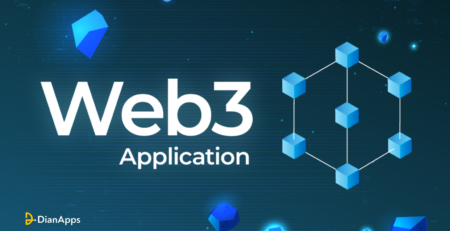Latest Must-have Web Developer Skills Needed In Front-End Programming
Looking to advance your abilities and keep up with the competition as a front-end web developer? To succeed in the field, web developers must stay current with the most important abilities. There are plenty of fascinating skills to learn and apply, from grasping contemporary front-end frameworks to comprehending user experience design.
Being at the forefront of the curve will help you stay relevant and competitive as the demand for qualified front-end developers reaches an all-time high. Although the front-end web development industry is dynamic and always evolving, you may create web applications that are user-friendly and are optimised for various browsers and devices by keeping up with the most recent trends and technology.
Whether you’re looking to build complex applications quickly and efficiently or create user-friendly interfaces that meet the needs of users, mastering the latest must-have web developer skills is crucial for success.
So, are you all set to take your skills up a notch and produce engaging and responsive user interfaces?
Let’s begin!
Are front-end developers in high demand in 2023?
Developers are in high demand than ever as a result of Covid-19. Withstanding the pandemic’s economic downturn, technology has evolved into a profession that is recession-proof. Today, technology is an integral component of our lives and business, regardless of what is happening in the world.
In today’s tech-driven world, front-end developers and anyone else who works on creating or managing websites, apps, and software are crucial. The employment rate in the field of web developer is expected to rise up by an amazing 23% between 2021 and 2031, which is substantially quicker than normal, according to the Bureau of Labor Statistics.
There are a plethora of front-end development job openings available in the market of the United States. Hence, it’s fair to assume that they are high-valued hot property at the moment.
Necessary Skills Required for Front-end Developers
1. Strong JavaScript knowledge
JavaScript – a powerful programming language that is indispensable in the journey of front-end web development. A deep understanding of the language includes knowledge of its latest features such as async/await, promises, and ES6/7/8 syntax. A front-end developer should also be familiar with common JavaScript design patterns and best practices for writing maintainable code. This includes the understanding of concepts such as hoisting, closure, and the “this” keyword. It also takes into account the knowledge regarding popular JavaScript libraries and frameworks, such as AngularJS and jQuery, and the ability to write clean, efficient, and reusable code.
2. HTML, CSS proficiency
The two important pillars – Hypertext Markup Language (HTML) along with Cascading Style (CSS) form the crux of web development. A front-end developer should have a solid understanding of HTML, including knowledge of semantic HTML, which is the use of HTML elements to describe the type of content they contain. A front-end developer should also be proficient in CSS, including layout, styling, and responsive design. This includes knowledge of CSS layout techniques such as Flexbox and Grid, and understanding of media queries, which allow you to apply different CSS styles based on the screen size.
3. Familiarity with JS frameworks and libraries
You must be aware of the JS framework and libraries. Yes, we’re taking about a victorious trio – React, Angular, and Vue.js – that facilitates in streamlining development and improving the performance of web applications.
- React is a JavaScript library for building user interfaces, it allows you to build reusable UI components;
- Angular is a framework for building dynamic web applications, it uses two-way data binding;
- Vue.js is a JavaScript framework for building user interfaces, it’s easy to learn and has a small footprint.
It is obviously important for a front-end developer to be familiar with at least one of these frameworks and understand when to use them in a project.
4. Experience with CSS preprocessors and CSS in JS
CSS preprocessors such as SASS and LESS and CSS in JS techniques can help improve the maintainability and scalability of styles in web applications. A front-end developer should be familiar with at least one of these strategies and be aware of their advantages and disadvantages. A CSS preprocessor is a scripting language that expands the capabilities of CSS and enables the usage of variables, functions, and other programming elements in stylesheets. CSS in JS is a technique that allows you to write your styles in JavaScript. It can be handy for creating reusable UI components that can be readily shared across your application.
5. Web accessibility and performance understanding
With the growing focus on web accessibility and web performance, it is essential for a front-end developer to understand the concepts and techniques related to these areas. This includes understanding of ARIA, which stands for Accessible Rich Internet Applications, semantic HTML, which is the use of HTML elements to describe the type of content they contain, and performance optimization techniques such as lazy loading and code splitting. Lazy loading is a technique for loading resources only when they are needed, this can help improve the load time of your web pages. Code splitting is a way through which you can fragment your code into smaller chunks that can be easily loaded as and when needed, which can lower the time to load the web page.
6. Knowledge of build tools
Building and deploying web apps can be automated with the aid of build tools like webpack and babel. A front-end developer should be able to set up and configure a build process and have a solid understanding of how these tools operate. Webpack, being a module bundler, compiles all your JavaScript modules and dependencies into one unique file. With the help of the JavaScript compiler Babel, you can use the most recent JavaScript capabilities on outdated browsers.
7. Familiarity with Agile development
Agile development methodologies such as Scrum and Kanban can help improve the efficiency and effectiveness of web development teams. Agile is an iterative method to software development and project management that places a strong emphasis on adaptability, teamwork, and customer satisfaction. A front-end developer should be familiar with these methodologies and understand how to work in an Agile environment. This includes understanding of concepts such as sprints, user stories, and backlogs, and being able to work effectively in a team environment.
8. Understanding of latest web technologies
A front-end developer must keep up with the latest web technologies in order to provide users with fresh and inventive experiences.
Understanding technologies includes
- WebAssembly, a framework that enables you to run low-level code such as C++ in a web browser;
- WebGL, which helps you to create 3D visuals and animations in a web browser;
- WebVR, which lets you to create virtual reality experiences in a web browser.
9. Responsive design and layout
The use of mobile devices are touching heights. Hence, it is important to make sure that your websites are optimized to work on multiple screen sizes. A front-end developer should have a solid understanding of responsive design principles and be able to create a layout that adapts to different screen sizes while in the process of mobile and web app development. This includes an understanding of concepts such as fluid grids, flexible images, and media queries.
10. Cross-browser compatibility
Cross-platform development, it’s nothing but the ability of a web application or website to function properly without any interruption across different platforms and web browsers. This includes ensuring that the layout and functionality are the same across different browsers and that any browser-specific issues are identified and addressed.
Therefore, it is advisable that developers should be aware of browser-specific peculiarities and limitations and test their code on various browsers to ensure that they are compatible enough.
11. Webpack and Babel
These are tools that are commonly used in front-end development to optimize and transpile code. Babel is a JavaScript transpiler that is used to transform contemporary JavaScript code into a format that is compatible with older browsers.
While Webpack is a JavaScript module bundler that is used to bundle and organize code. Together, these tools facilitate programmers to create cutting-edge JavaScript code and guarantee that it will function properly across a variety of browsers.
12. Familiarity with cloud-based services
With more businesses moving their web applications and services to the cloud, cloud-based services are becoming more and more crucial for front-end developers.
The infrastructure and tools required to create, deploy, and scale web applications are made available by cloud-based services like AWS, Google Cloud, and Azure, which can significantly increase the effectiveness of developers’ development processes.
13. Git version control
The aforementioned is a system that is used to manage and track changes to code. Git allows developers to collaborate on code, roll back to previous versions, and manage different branches of development. Understanding how to use Git is essential for any front-end developer, as it allows for easy collaboration and ensures that code changes can be tracked and undone if necessary.
14. Understanding SEO principles
It is important for front-end developers because it helps ensure that a website or web application is optimized for search engines. This includes understanding how search engines rank pages, and making sure that the website is structured and coded in a way that is favorable to search engines. Developers can improve their website’s search engine rankings by optimizing its content, structure, and links, as well as ensuring that it is mobile-friendly and fast-loading.
15. Experience with browser developer tools
Experience with browser developer tools is essential for front-end developers, as it allows them to debug, troubleshoot, and optimize their code. These tools, like the built-in developer console in the browser, let programmers view and alter a webpage’s HTML, CSS, and JavaScript in real-time, making it easier to detect and address problems.
16. Familiarity with JAMstack
JAMstack stands for JavaScript, APIs, and Markup. It’s a modern web development architecture that prioritizes performance and security by using pre-built markup and APIs, rather than relying on a traditional backend. This allows for faster and more scalable web development, which is why it’s becoming increasingly popular among developers.
17. Experience with debugging and troubleshooting
It is critical for front-end developers, as it allows them to identify and fix issues in their code. This includes understanding how to use browser developer tools, as well as knowing how to diagnose and fix common issues such as JavaScript errors and browser compatibility problems.
18. Understanding of security best practices
Web security best practices are something a front-end developer should be aware of and able to apply. It’s necessary to comprehend ideas like content security policy (CSP), cross-site scripting (XSS), and cross-site request forgery. Additionally, a front-end developer should be knowledgeable about typical security flaws and how to avoid them.
19. Experience with testing and automation
A front-end developer should have experience with testing and automation. Understanding concepts like integration testing, unit testing, and end-to-end testing is required. A front-end developer should also be familiar with testing frameworks such as Jest, Mocha and be able to write test cases for JavaScript code. Additionally, a front-end developer should be familiar with tools such as Selenium, Cypress, and be able to automate browser tests.
Non-technical skills in front-end Developer Skills
People often think that developers simply need to be skilled at making user interfaces, but interaction with customers and understanding their needs are also crucial for producing great softwares. Both vocal and linguistic communication abilities should be sharp in you. You must also understand the fundamentals of functioning as a team in order to collaborate effectively.
Regardless of their job description or official title, all front-end web engineers need to be exceptional problem solvers. The fine art of development is in the innovative problem-solving that goes into everything from figuring out how to put an idea into practice to fixing issues that arise to determining how to make your front-end code work with the back-end code that is being used.
These are some of the fundamental important talents in front-end development that a developer must possess to be successful in this line of work.
In a nutshell…
Front-end development is a field that is constantly changing. Being a successful front-end developer in 2023 will require you to have a solid foundation in JavaScript, HTML, and CSS as well as experience with JavaScript frameworks and libraries, CSS preprocessors, CSS in JS, web accessibility and performance optimization, and build tools.
Additionally, you’ll need to be familiar with Agile development methodologies, the latest web technologies, responsive design, cross-browser compatibility, version control systems, SEO, browser developer tools, debugging, troubleshooting, cloud-based services, API, JAMstack, security best practices, and testing and automation.
Start honing your skills and developing your portfolio if you’re truly committed to becoming a competent front-end developer. It is not an overnight thing but rather a process that requires your efforts, time, determination, and necessary resources available to you. We have curated a roadmap for front-end developers that you can follow to ace your path in this field.




